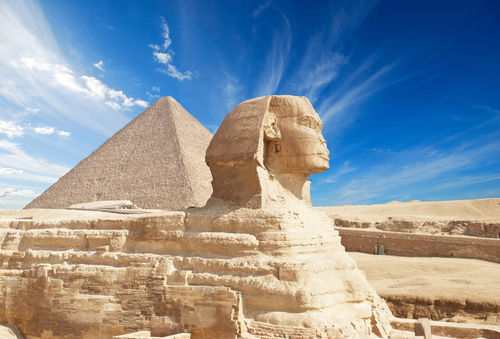EGYPT
- GLOBAL COASTAL VACATIONS
- Sep 12, 2018
- 3 min read

Planning a trip to Egypt and looking for a few hints and tips to help you prepare? Here you'll find loads of useful information to help you make the most of your visit and ensure a smooth trip from staying healthy to local customs and how to behave.
What vaccinations do I need for Egypt
You should seek medical advice from your local health practitioner before travelling to Egypt and ensure that you receive all of the appropriate vaccinations. As a guide Tetanus, Diphtheria, Typhoid, Hepatitis A and Rabies are strongly recommended.
Is it safe to drink tap water in Egypt?
Tap water in Egypt is actually safe to drink but as it is heavily chlorinated we do not recommend that you do as it causes stomach upsets. Bottled mineral water is readily available in hotels, shops and restaurants and inexpensive. Brushing your teeth and showering with tap water in Egypt poses no problem.
What's the food like in Egypt?
With succulent grilled meats, fish and vegetables, Egyptian cuisine has something to appeal to most eaters though in order to avoid stomach troubles while on holiday, it's worth taking a few precautions. As tap water is highly chlorinated it's best to avoid salads unless dining in upmarket restaurants, hotels and cruise boats. Any food you do eat should be piping hot to ensure it's been cooked properly - avoid food that looks like it has been sitting around for awhile. Try taking a probiotic a few weeks before and during your holiday to build your own natural defence against bugs that may come into contact with your stomach.
What's the food like in Egypt?
Egyptian cuisine is not unlike the cuisine of Turkey, Syria and other Middle Eastern countries. The basic staple centres on pulses - fuul medames (fava beans often served with vegetables and boiled egg) and ta'amiyya (chickpea patties) though visitors to Egypt are more likely to encounter a delicious spread to meats accompanied by salads, rice, seasoned vegetables, and mezzes. Houmous and other yoghurt-based dips, coupled with fresh pitta, schwarma (similar to a Turkish doner kebab), kofta (a skewered spiced meat dish) and fiteer (a kind of pizza) are other popular dishes. The lunchtime bargain has to be kosheri, though - a curious mix of noodles, rice, lentils, fried onion and spicy sauce. It's very tasty and exceedingly cheap. Bread is a staple of Egyptian cuisine and you'll a version served with every meal. Vegetarians should find plenty of options with stuffed peppers, grilled aubergine and baked squash popular meat-free dishes in Egypt.
Exotic juices freshly squeezed from the fruits of mango, guava and other seasonal varieties are also widely available, as is fresh fruit. Alcohol is not readily available as Egypt is a predominantly Islamic country though the major hotel chains usually have well-stocked bars.
Is it standard to tip in Egypt?
The word 'backsheesh' can refer to a tip or a bribe and it is a word you are likely to hear when travelling around Egypt as tipping is a natural part of daily life. You're likely to have a tip requested from you by anyone who has provided a service including the usual, waiters and drivers, to the less expected, including security guards at some tourist sites. As a guide, it's customary to tip restaurant staff with 10% of the bill (assuming a service charge has not already been added though this goes to the restaurant and not to the waiter), housekeeping staff at hotels around USD $2 per day, taxi drivers around $1 and cruise staff $4-5 per day to be divided between the on-board crew. When delivering your backsheesh, fold the notes in your hands and pass the money in the form of a handshake.




































Comments